Here’s a dirty little secret about the news: people love stories about others’ misfortunes. Our fellow citizens in California love to watch the snowstorms in the east; those of us in the east don’t mind seeing the brushfires and mudslides of our western brethren. And all of us join together to watch the devastation of a tsunami half way around the globe. Whatever problems we might have, at least we don’t have those problems.
So, it’s hardly surprising that the recent travails of Brian Williams and NBC News are so popular in the press. The media always love stories about the media, and if the media get to cover the failings of their competitors, so much the better. After all, it’s happening to them (in this case, Williams and NBC News) and not to us. What could be better?
The problem is that what we’re all watching now is about us as much as it’s about them. It’s about “us” in TV news – for that matter all the news media. And even more troubling, it’s about “us” in the audience as we’re drawn so powerfully to the growing celebrity status of journalists.
Let’s start with a surprising revelation: People sometimes make mistakes—foolish, embarrassing mistakes that, looking back, seem unimaginable. Reporters do it; politicians do it; even our best friends do it. If we’re honest, each and every one of us has embarrassed ourselves in ways that now seem preposterous. Or if we haven’t, we will.
But this isn’t as simple as one famous, successful, charming news anchor setting off on his own to embellish his war record. Whatever Brian Williams did or didn’t do, wherever he ends up, we’ve been with him each and every step of the way.
Think back to what was happening when Williams made his visit to Iraq. In and of itself, sending a well-known reporter to cover a war is not unusual. Experienced correspondents and anchors are good at their jobs, and often their prominence can get them interviews and access others couldn’t get. At ABC News, where I was president, we sent Ted Koppel as part of our team to cover the war in early 2003.
But Williams was more than a well-known reporter or anchor. He was the heir apparent to Tom Brokaw as anchor of Nightly News, only two months away from the official announcement he would be taking over. NBC News was grooming him for the position, but was also mounting an impressive marketing campaign to establish him as the worthy successor. What better way to do that than to send him into the midst of the Iraq war to march triumphantly into Baghdad with “our” U.S. troops. I know. I was watching it all and admiring how good they were at positioning Williams for the inevitable promotion.
It wasn’t only NBC News that was increasingly flexing its marketing muscle at the time. Roger Ailes had taught us all a new level of branding with Fox News, passing CNN and leaving MSNBC far behind by the time of 9/11. All of us were losing viewers to the cable news channels, and there was enormous pressure to stem the erosion.
Things have only gotten worse since the spring of 2003. The competition is fiercer, the financial pressures are greater, and as digital media has come into its own—and particularly social media and streaming video on mobile—there’s more marketing and publicity and branding in news than ever before. Inevitably, the temptation is to make that marketing and publicity and branding be about the people covering the news, rather than about the news itself.
See Brian Williams Through The Years
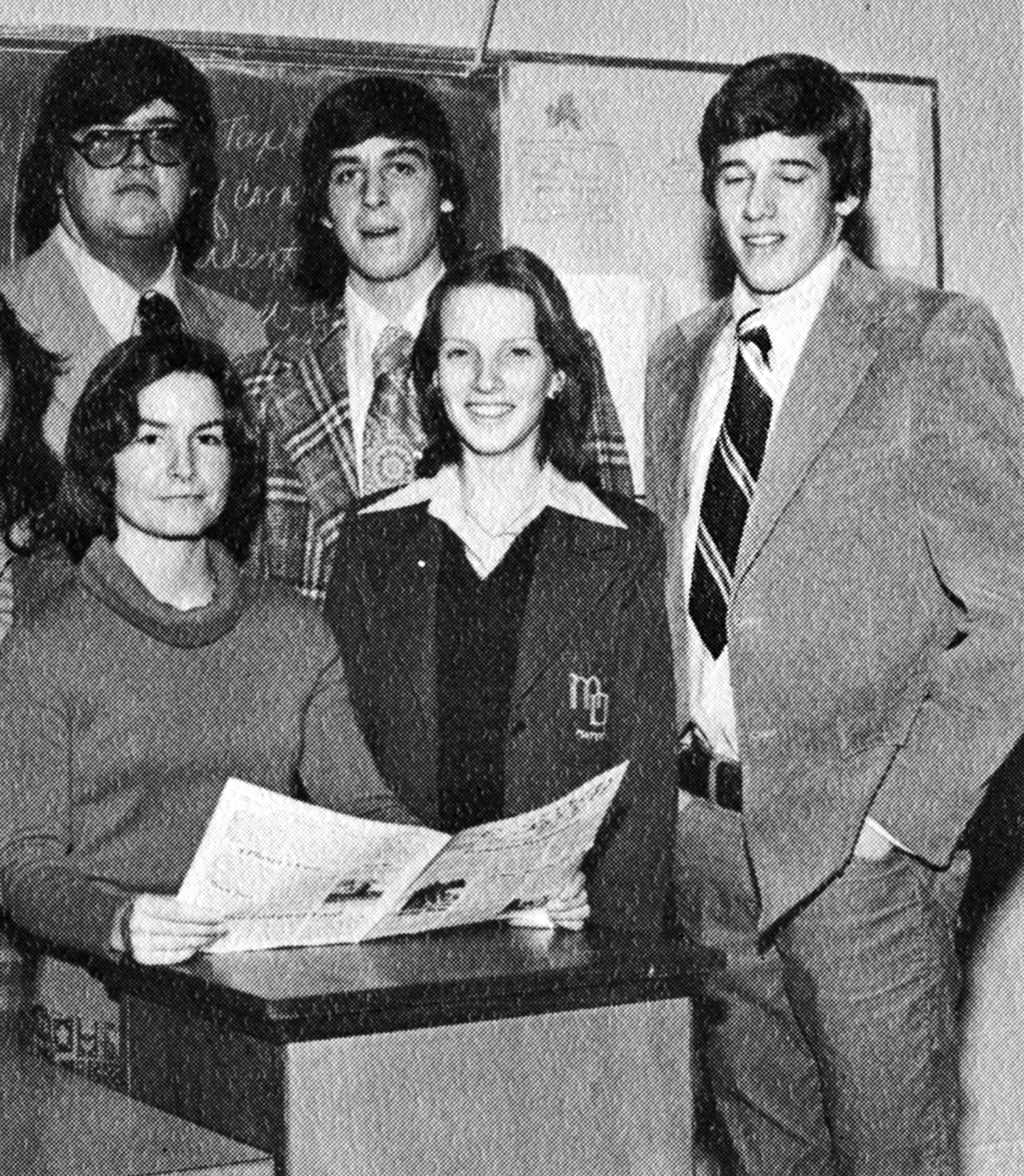
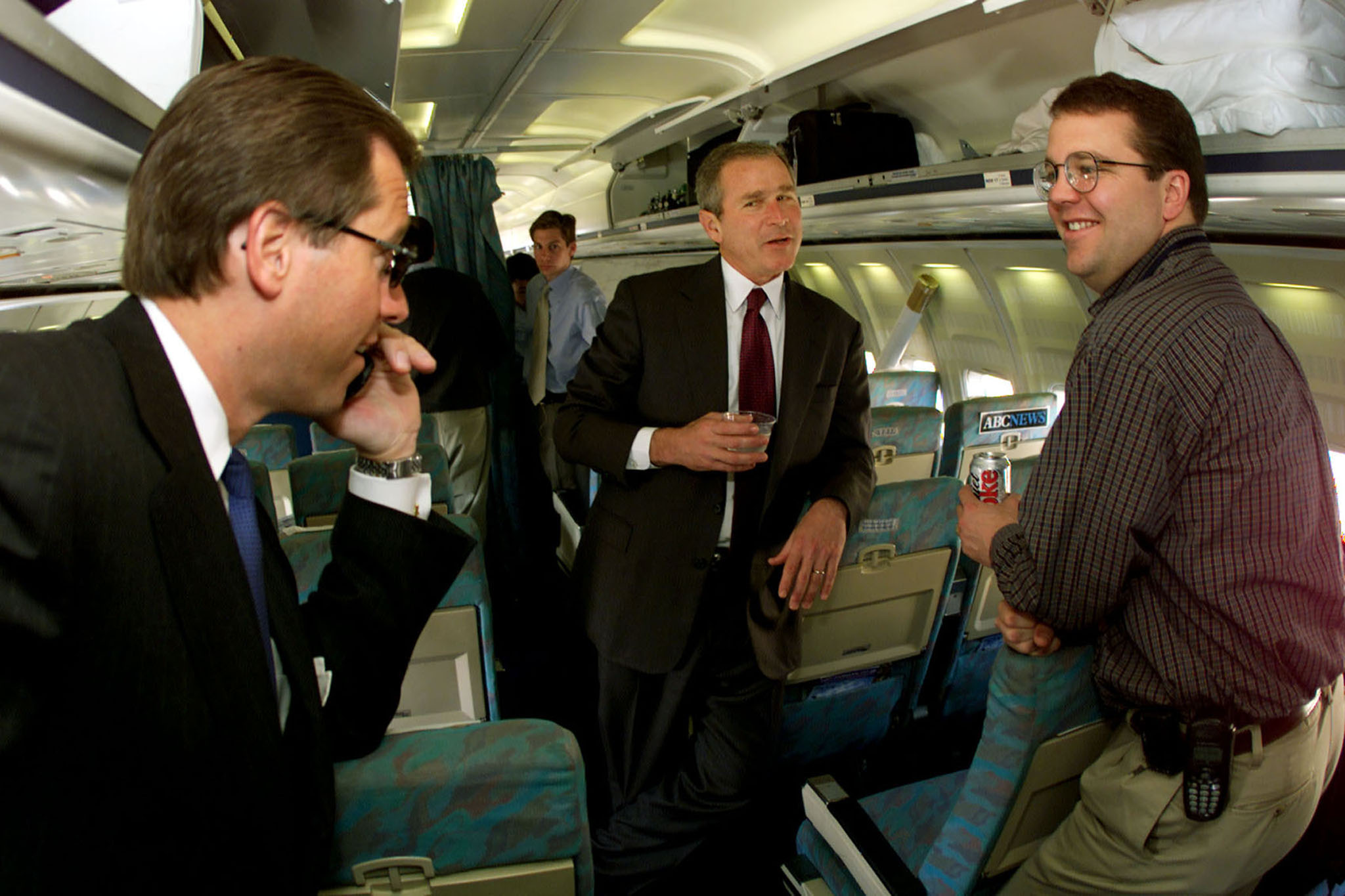
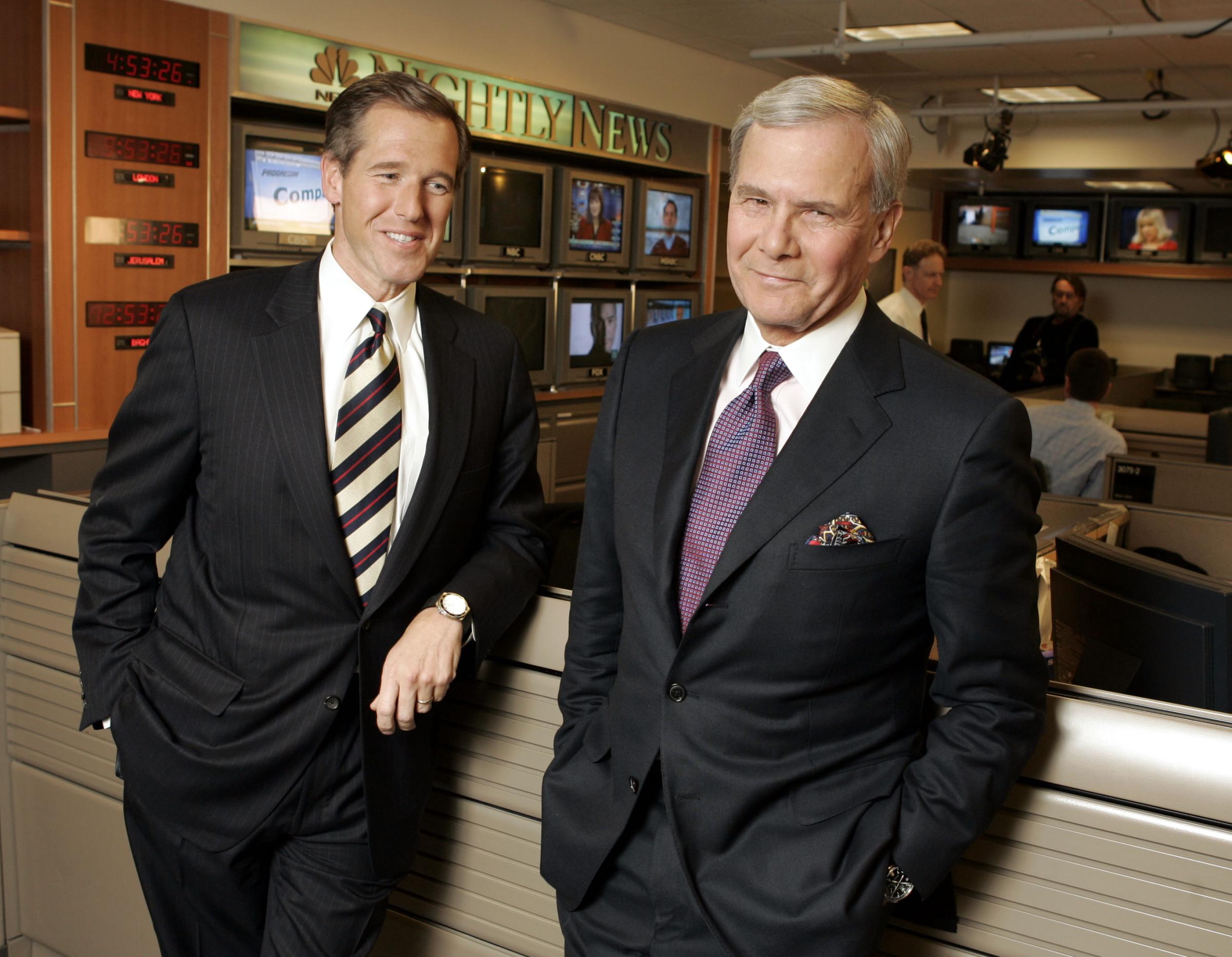
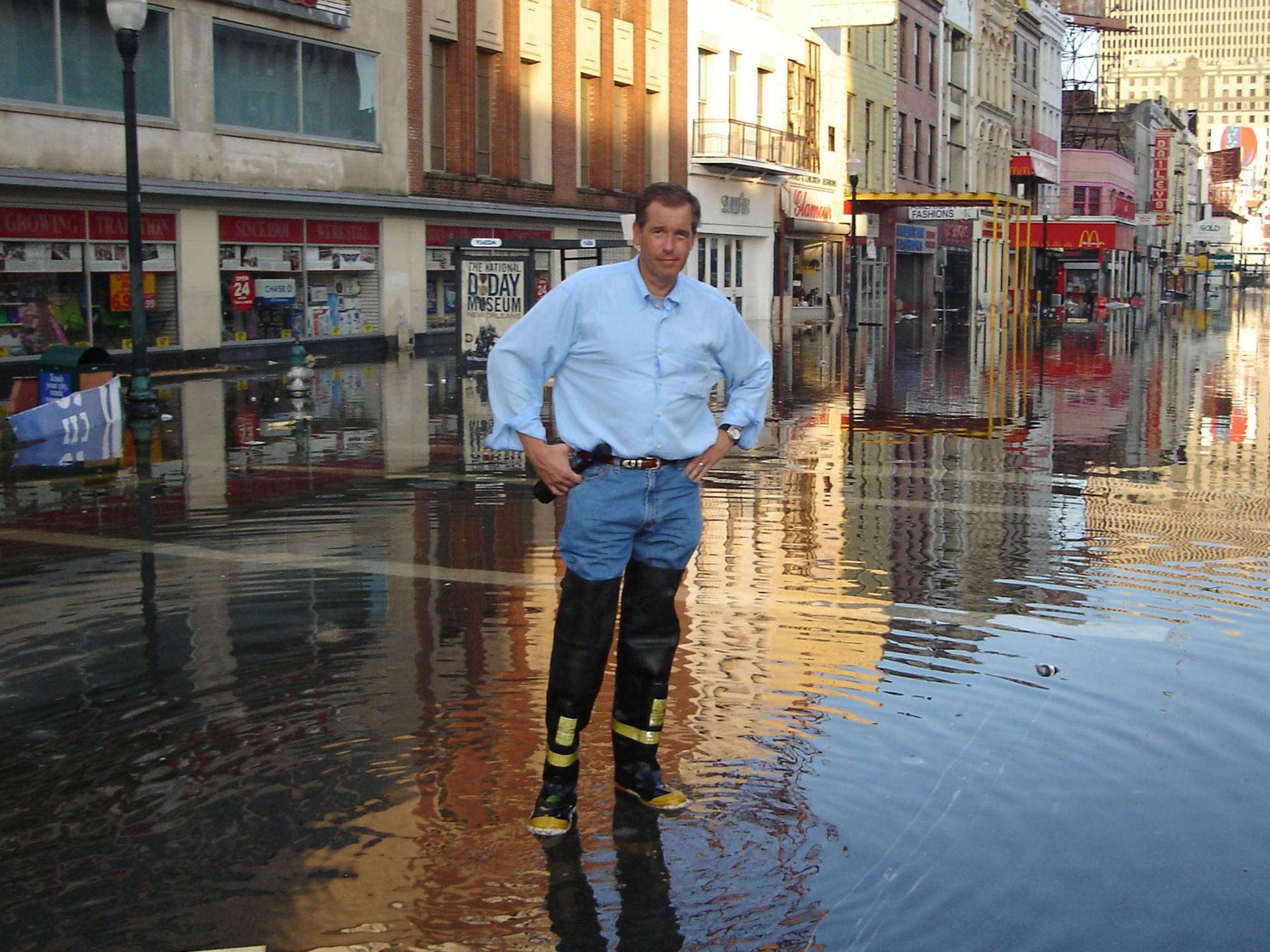
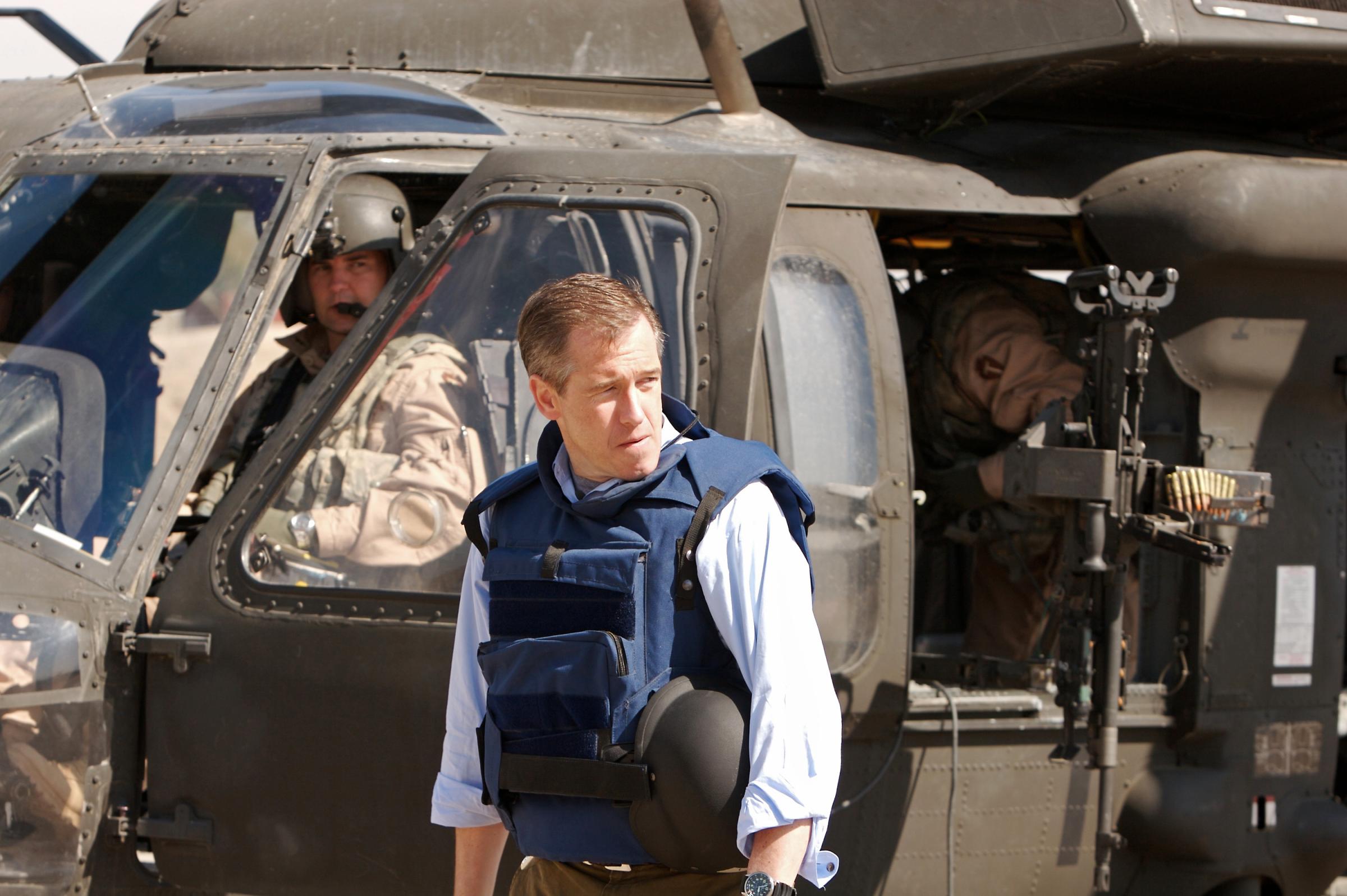
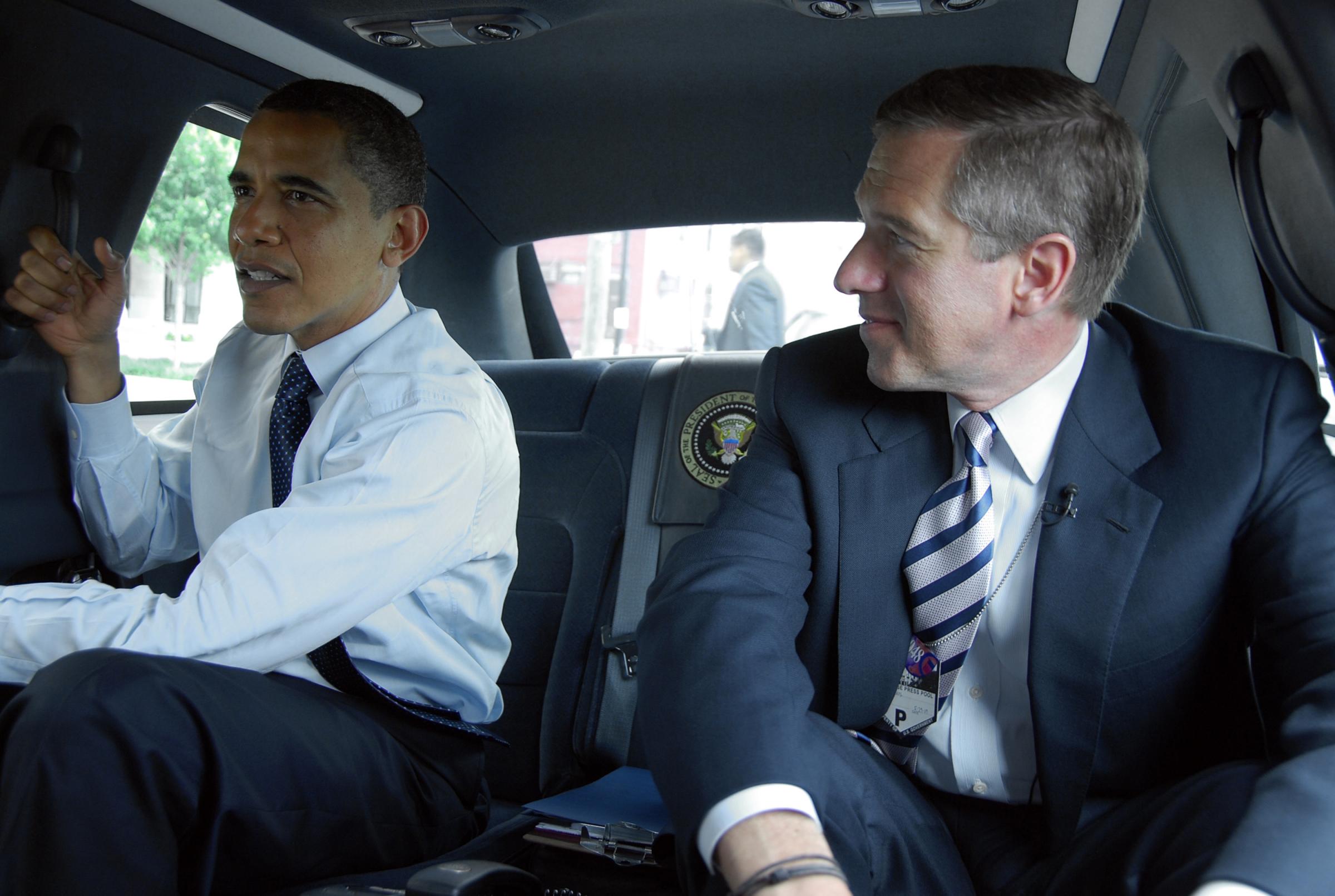
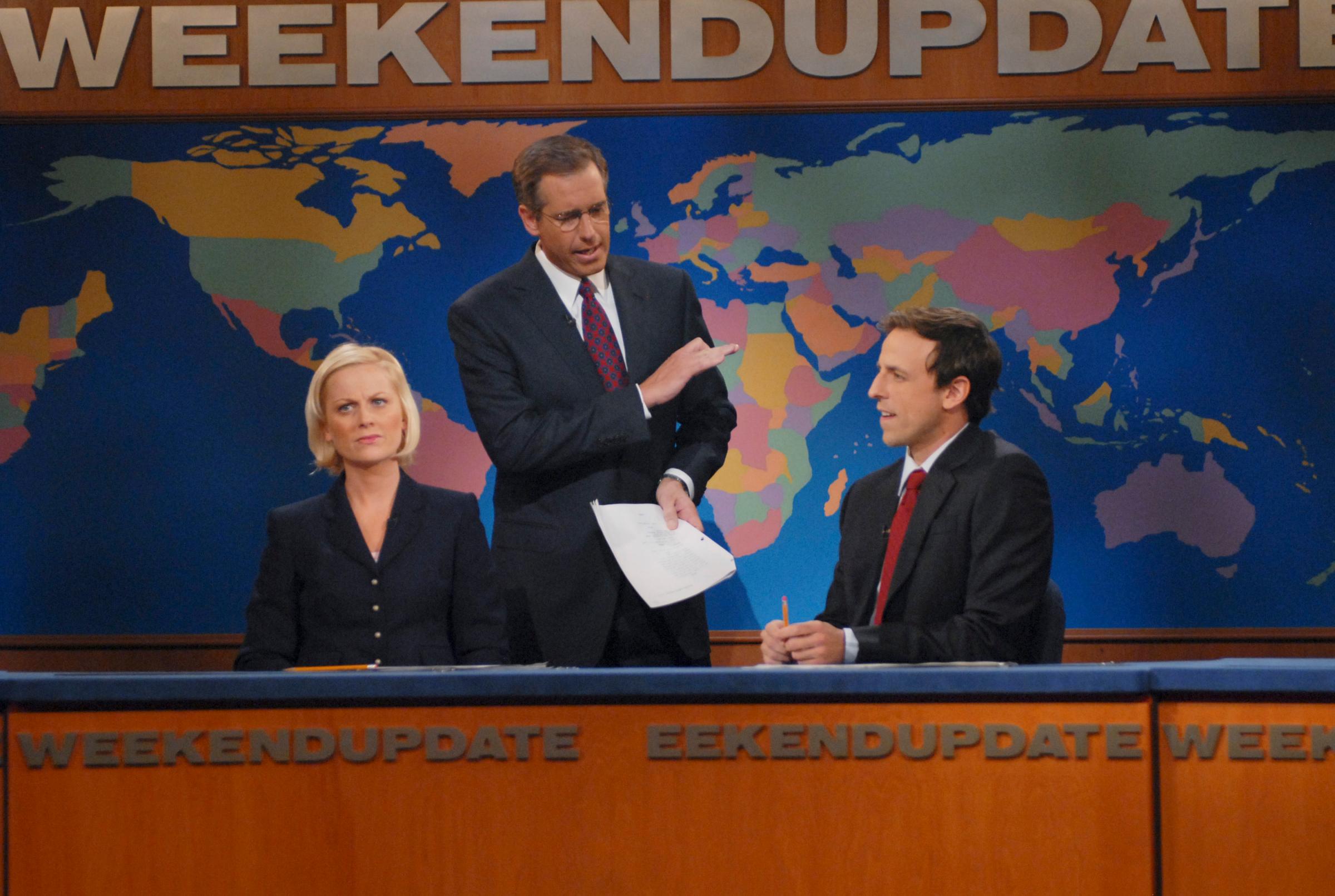
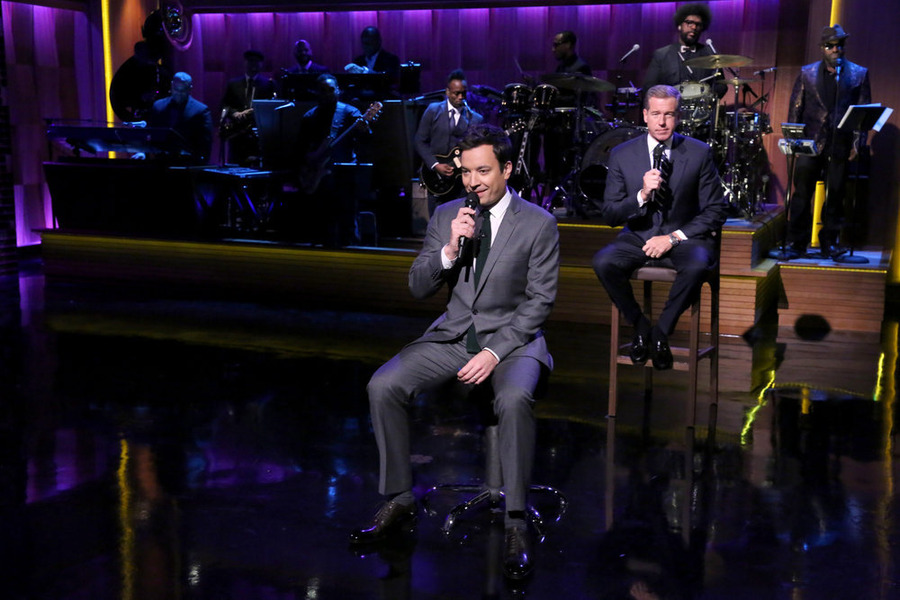
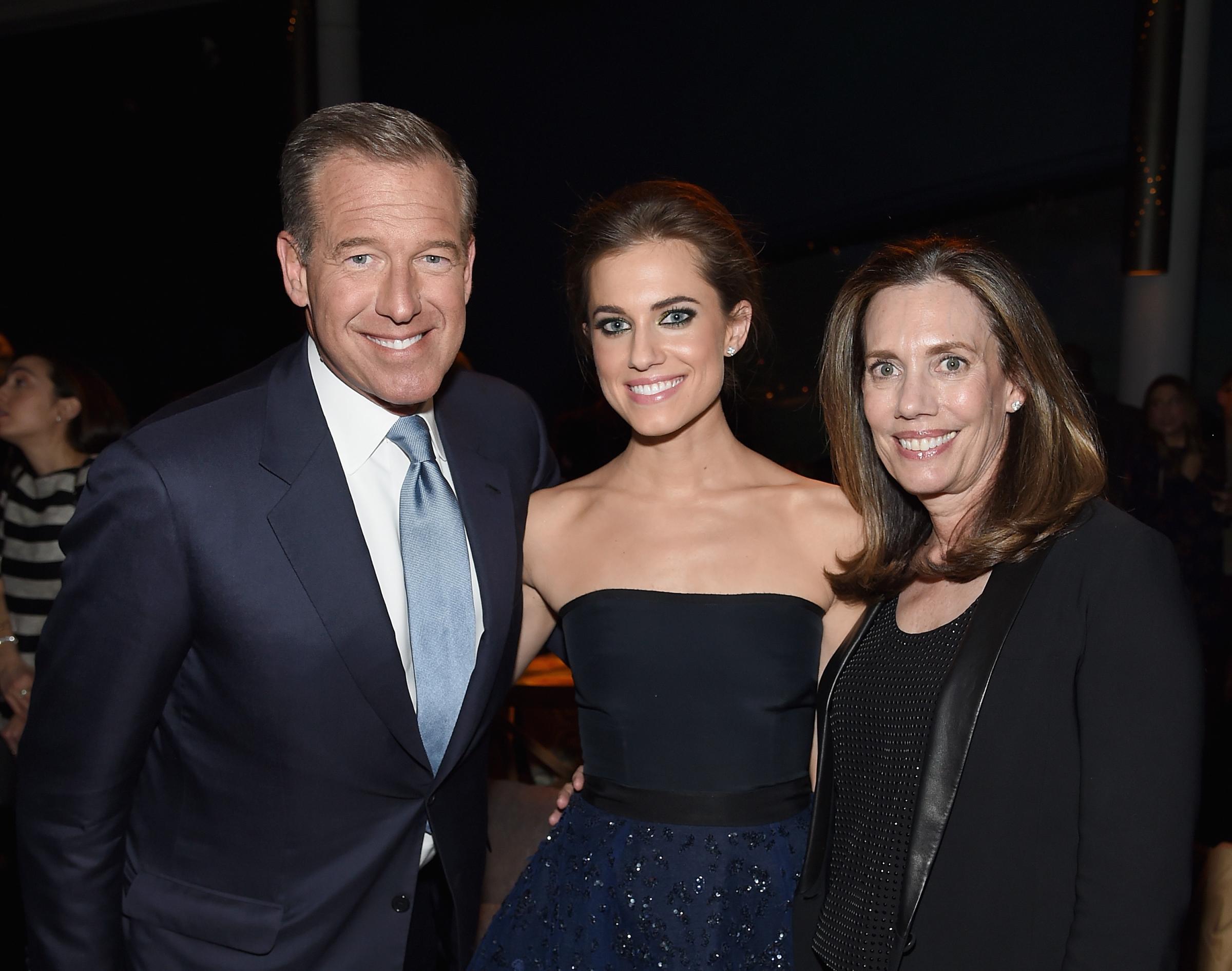
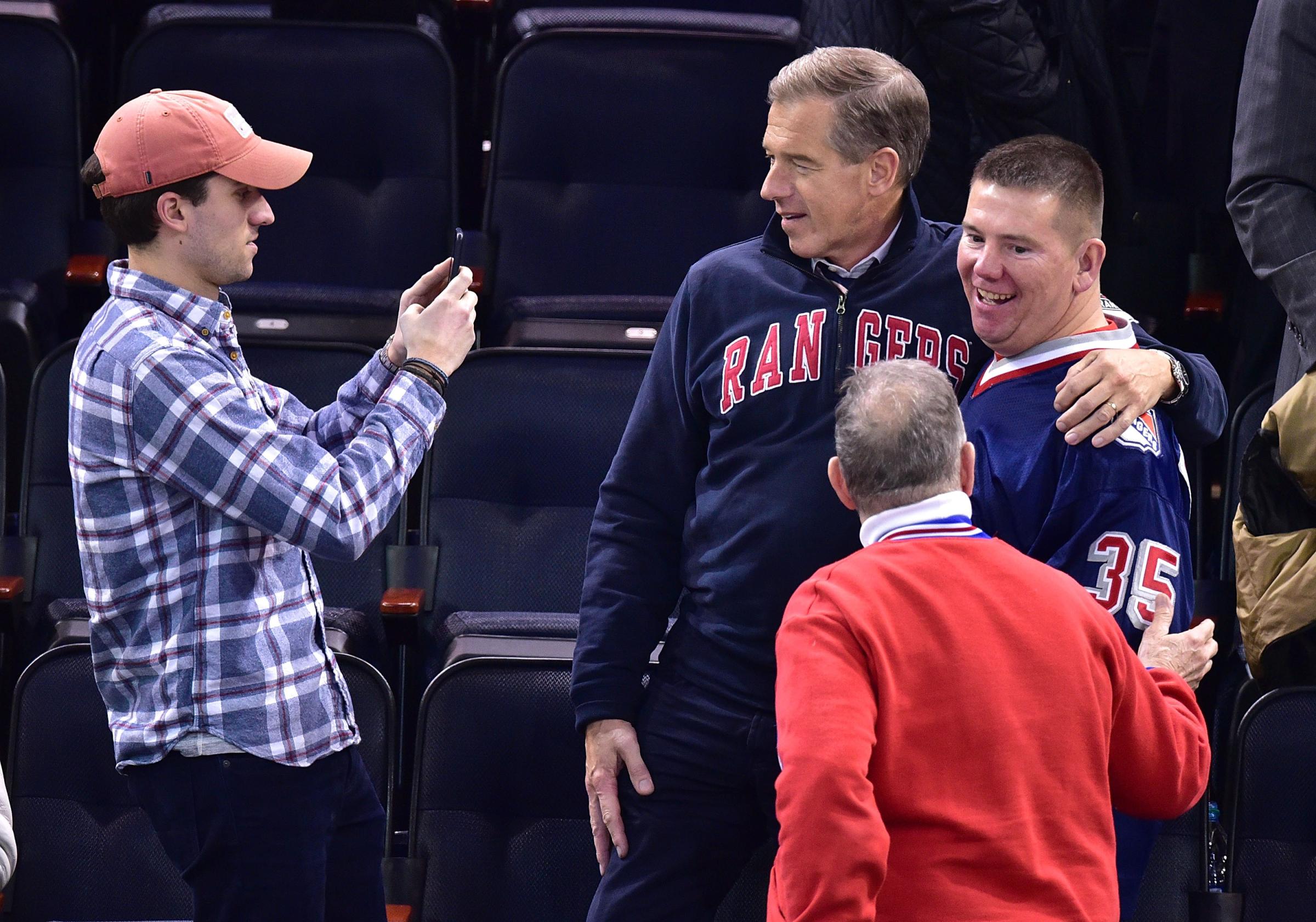
In that environment, there wasn’t much incentive for people around Williams to be reining him in. Just as there’s no real incentive to rein in other anchors or reporters making themselves the center of the stories they cover.
It doesn’t have to be this way. I worked for years with Peter Jennings, who established himself over an entire career as a reporter covering the Middle East and conflicts around the globe. As someone with experience, he never felt the need to make himself the center of the story—to establish his courage or willingness to take risks. He always urged all of us who worked with him to remember that our job was to cover the story, not to become the story.
We took Peter’s attitude to heart. Six months after Peter died, our own Bob Woodruff and his cameraman, Doug Vogt, were seriously injured by an IED on an Iraq road outside Taji, Iraq, in January of 2006. No one needed to embellish what had happened. Both had shrapnel injuries to their brains. Bob remained in a coma for 36 days. Miraculously, he came out of it—miraculous because none of us, beginning with his devoted wife, Lee, knew whether he would ever wake. Or, if he did, what kind of life he would have.
But through strength of character and the support of his family and friends and great good luck, Bob came back. When he did, we agreed that we should do a documentary on what he’d experienced. But from the first meeting I had with Bob about that documentary, we both agreed that it shouldn’t—couldn’t—be about just Bob. Bob told his story in that documentary, but his story was a minor portion of the hour we produced; most of the hour was given to the men and women who’d suffered injuries similar to Bob’s (and worse) and to the families who sustained them. This wasn’t about Bob the war hero. This was about Bob the witness. Bob the reporter.
No one knows, no one can know, where the Brian Williams story will lead. NBC News is conducting an investigation into the facts. The story may turn out to be even worse than what we know now; the story may turn out to be not as bad as it looks. But before we jump too quickly on the gloating bandwagon, let’s consider what role we all may have played in the drama we’re all watching unfold.
If we really want to encourage reform, let’s seek out those who cover the news and don’t put themselves at the center of it. Let’s reward them with our time and attention. I know Brian Williams. He is a good newsman and a good man. Like so many of our anchors and reporters today, he simply needs to know that we value him for his reporting, not for his “making” the news.
Or, of course, we can all just enjoy watching others’ misfortunes.
Read next: Operation Anchor Shield: Why NBC News and Brian Williams Need to Open Up, Now
More Must-Reads from TIME
- Caitlin Clark Is TIME's 2024 Athlete of the Year
- Where Trump 2.0 Will Differ From 1.0
- Is Intermittent Fasting Good or Bad for You?
- The 100 Must-Read Books of 2024
- Column: If Optimism Feels Ridiculous Now, Try Hope
- The Future of Climate Action Is Trade Policy
- FX’s Say Nothing Is the Must-Watch Political Thriller of 2024
- Merle Bombardieri Is Helping People Make the Baby Decision
Contact us at letters@time.com